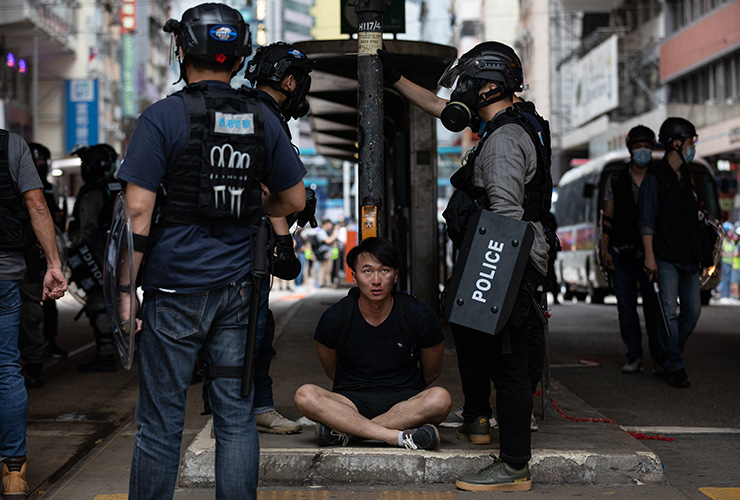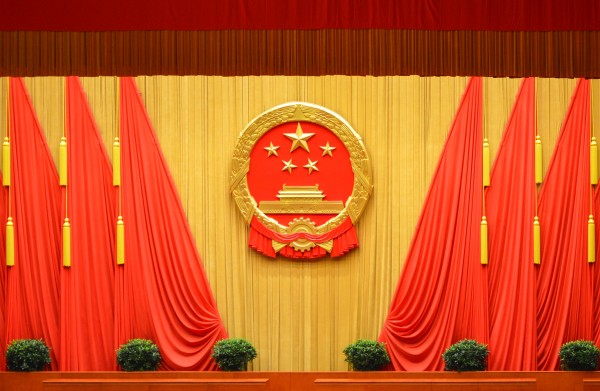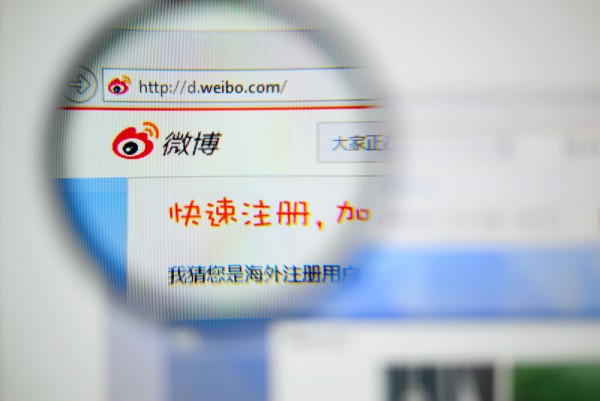The draft of China’s national security law for Hong Kong has heightened concerns for press freedom and raised fears of self-censorship amongst journalists and media outlets in the special administrative region, the International Press Institute (IPI) said today.
The details of the draft national security law were released on June 20 after a three-day review by the Standing Committee of China’s National People’s Congress (NPC). The draft law, which has 66 articles divided into six chapters, provides for the establishment of a national security commission to oversee the implementation of the security law. The commission will be headed by Hong Kong’s chief executive, but it will also include a Beijing-appointed adviser. In addition, the Chinese central government will establish an agency to analyse and gather intelligence about the security situation in Hong Kong.
The law is expected to criminalize acts that “endanger China’s national security”, such as separatism, subversion, terrorism and collusion. Reports have suggested that those accused of breaking the law could face up to 10 years in prison.
IPI Deputy Director Scott Griffen said the new details of the draft law confirmed fears around the future of press freedom in Hong Kong.
“In addition to the risk of abuse of vague concepts of ‘separatism’ and ‘terrorism’, which are used to repress freedoms in mainland China, the draft bill now shows China’s intent to closely supervise the law’s implementation and erode Hong Kong’s autonomy”, he said. “The world should not be fooled: Despite attempts by the Chinese government to portray it otherwise, this law greatly endangers the right of journalists in Hong Kong to publish critical news and opinion. It should be withdrawn.”
The national security bill was brought in response to Hong Kong’s pro-democracy movement, which through repeated mass protests last year successfully forced the Hong Kong government to withdraw a controversial bill that would have allowed for the extradition of criminal suspects to the mainland. On May 22 the vice chairman of the NPC standing committee, Wang Chen, said that the law was meant “to prevent, frustrate and punish the small minority of criminal acts that harm national security is to offer better protection to the safety of life and property of the vast majority of Hong Kong people, as well as their basic rights and freedoms”.
Journalists in Hong Kong expressed fears that the law will trample press freedom and force journalists to resort to self-censorship.
“The presence of a central government agency tasked with gathering intelligence means that journalists, especially those reporting for foreign media outlets, will be under increased surveillance”, a journalist told IPI on the condition of anonymity. “Moreover, it is still not clear what will constitute crossing the line, including sharing anti-China content on social media or the schedule for unauthorised protest. This will have a chilling effect on the media in Hong Kong.”
Another journalist, also speaking on the condition of anonymity, said that with the national security law in place, it was likely that the Hong Kong government would restrict freedom of expression in the name of “national security.”
“While it is unclear whether ‘speech’ would become a crime under the national security law, journalists and activists will have to be extra mindful when they express opinions online or publish articles that could be critical of the government”, the journalist added.
Foreign correspondents have to be particularly cautious, as the Hong Kong could use the national security law to harass any foreign correspondent who may have published works critical of the government.
In October 2018, Victor Mallet, an editor at the Financial Times, was expelled from Hong Kong after he organized a talk for Andy Chan, an activist advocating Hong Kong independence, at the Hong Kong Foreign Correspondent’s Club.
At the time, the expulsion of Mallet, the first ever of a journalist since Hong Kong came under Chinese control, was viewed as a serious breach of freedom of expression in Hong Kong.
“We should also expect the Hong Kong government to use the national security law as a tool to target any journalist publishing reports that might be deemed as “promoting” the Hong Kong independence or other sensitive agenda”, a journalist said.



